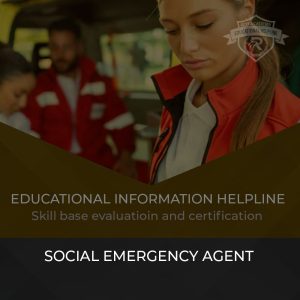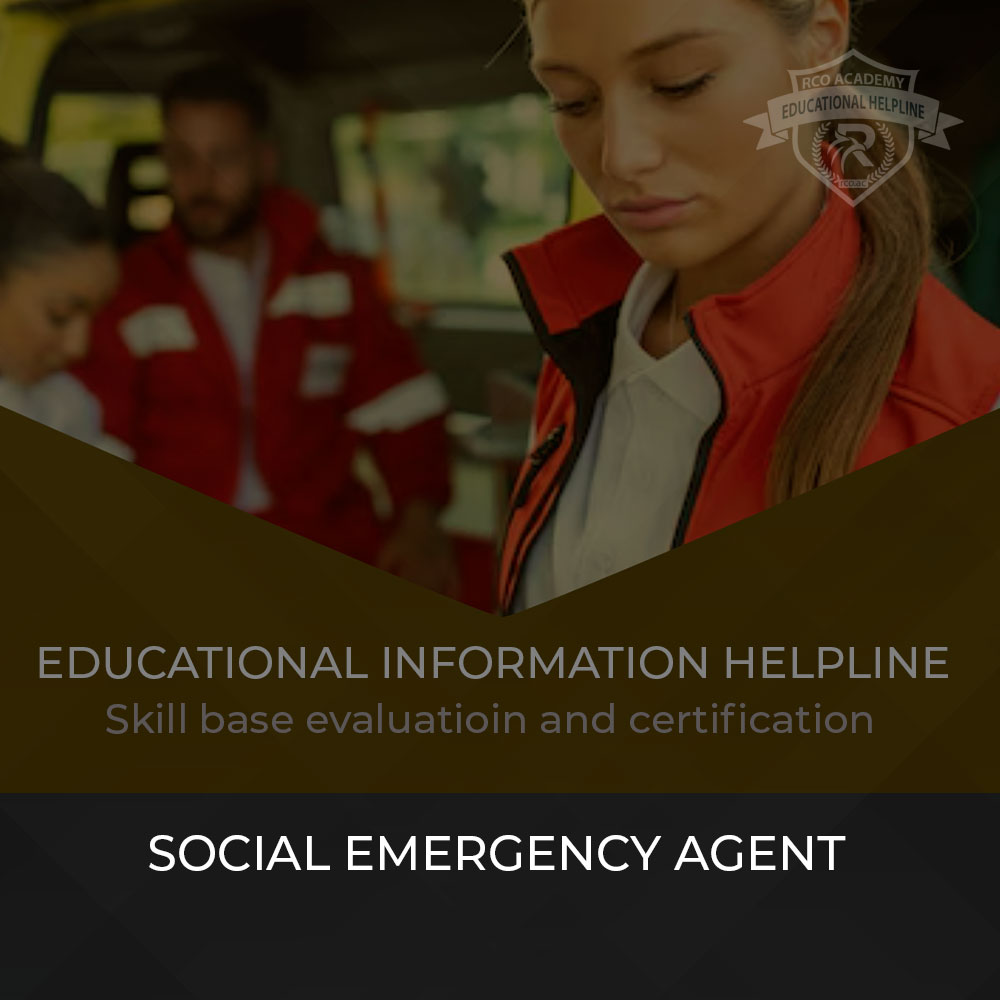No products in the cart.
- +971-558977343
- contact[@]rco.ac
- Dubai, UAE

The Social Emergency Agent Certificate is designed for applicants who want formal recognition of their real-world capability in Social Emergency Agent. RCO Academy validates skill level through document review and, when required, an online interview or competency-based assessment. This approach helps employers and decision-makers trust that the certified individual can apply the skill in professional scenarios.
In today’s competitive job market, verified credentials help reduce hiring risk and improve career mobility. This certification provides a structured pathway to prove your competence, strengthen your professional profile, and align your knowledge with practical standards.
Social Emergency Agent Certificate focuses on practical, job-relevant knowledge and consistent execution—beyond theory. It confirms your ability to perform key tasks, follow best practices, and deliver outcomes that meet professional expectations. Depending on the nature of the skill, evaluation may include evidence of experience, prior training, portfolio samples, or project-based proof.
The certification is suitable for professionals, freelancers, and job seekers who want measurable validation and a clear benchmark for their capability in Social Emergency Agent.
The core learning and verification themes commonly include:
Earning the Social Emergency Agent Certificate can support your career and credibility in multiple ways:
To obtain the certificate, applicants should meet at least one of the following prerequisites (depending on the skill scope):
If you want a reliable way to validate your capability in Social Emergency Agent, the Social Emergency Agent Certificate provides a clear pathway: apply, submit evidence, complete evaluation if required, and receive official skill-level approval.
Quick Links: Sports Industry Courses | Social Emergency Agent | Social Emergency Worker
| Certificate Type | |
|---|---|
| Evaluation Type | evaluation of educational records, evaluation of job records, evaluation of skill courses, Online Exam |
| Certificate Inquiry Methods | |
| Teaching Methods |
In this helpline program, RCO Academy helps you to receive a degree equivalent to your skill level by participating in the virtual course or by evaluating your supporting documents.
In this program, you can be evaluated by sending your educational records, skill training courses, a C.V of valid work experience, or participating in RCO online exam.
All Certificate issued through RCO academy website (RCO.AC) can be queried and tracked.
